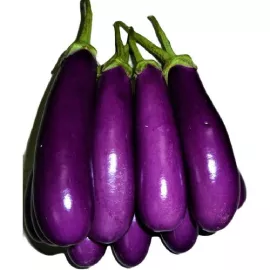
Brinjal not only allures our eyes but also our taste buds. Also called “King of Vegetables” and undoubtedly it earns it, as cooked in every household of India, regardless of income levels.
More About Brinjal
From mouth-watering Baigan fry to Baked Eggplant, Brinjal can be used in various interesting ways. Also known as eggplant or aubergine, is believed to have originated in India. Brinjal is a fruit but is commonly referred to as a vegetable. It comes in various shapes such as long, small, round and big. It also can be found in various colours from purple to white to green. There are rich in nutrients and also used for medicinal purposes.
Nutritional Facts
Per 100gm of brinjal contains:
- Carbohydrates: 5.7gm
- Fibre: 3.40gm
- Protein: 1gm
It also contains Folates, Thiamine, Vitamin A, Vitamin C, Vitamin E and Vitamin K.
Health Benefits
- In traditional medicine, eggplant is used as an antidote in case of mushroom poisoning.
- Brinjal decoction is used to treat swollen legs.
- Eggplant is also used to treat insomnia.
- Brinjal has a low Glycaemic Index, which is good for diabetics.
- Brinjal is rich in fibre and helps in weight management.
But brinjal should be avoided by one having high acidity problems.
India And Brinjal
Various variety of brinjal grown by Indian farmers such as Arka Unnathi, Arka Avinash, Arka Shirish, Arka Sheel, Pusa Bhairav, Pusa Kranti, Punjab Neelama, Pant Samrat, Annamalai etc
Storage
Brinjal can be stored at room temperature unwashed or uncut for 4-5 days. It can also be stored in a refrigerator for 10 days.
Other Information
Country of Origin: India
Sourced and marketed by: Pureroot

only after purchasing from Pureroot



.webp)
